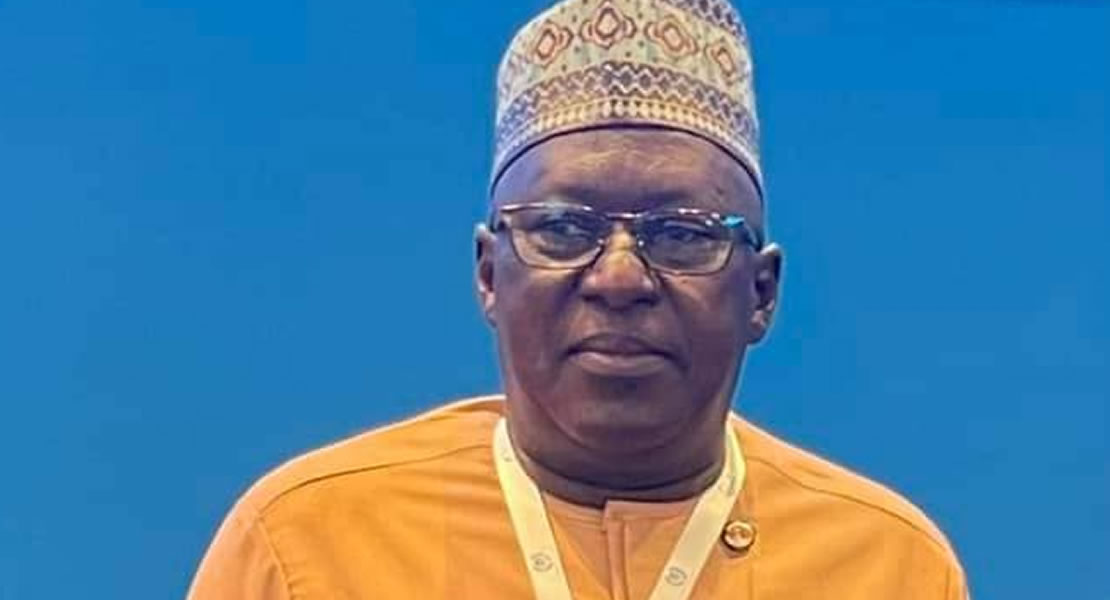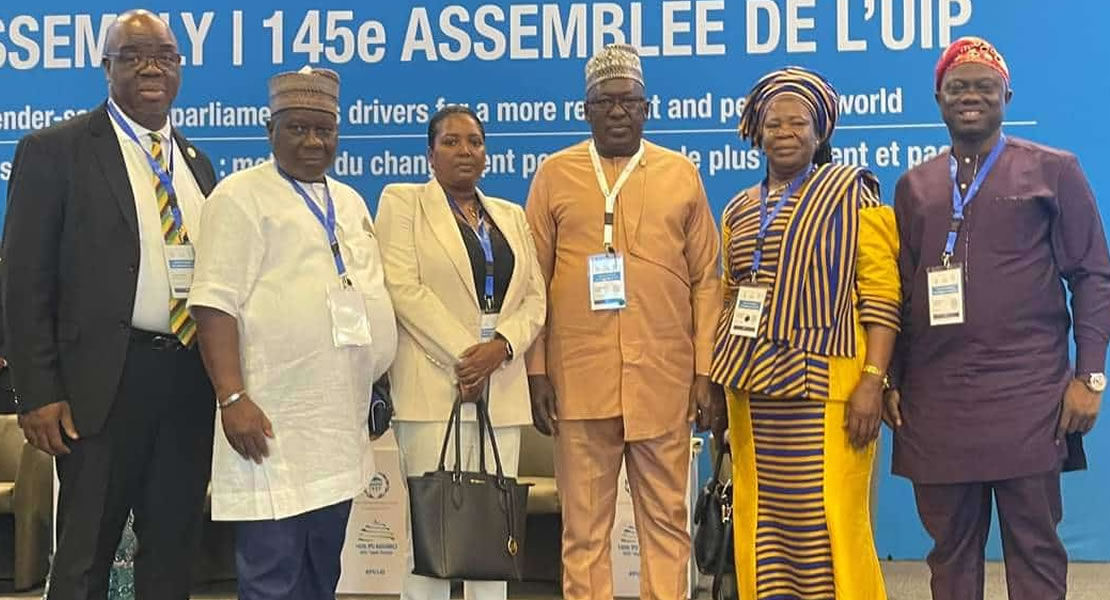
Speaker of the Economic Community of West African States (ECOWAS) Parliament, Dr. Sidie Mohamed Tunis said it is the believe of the parliament that gender equality needs to be at the core of the parliament’s work to engender democratic societies with a just distribution of resources. According to him discrimination does not only harm individuals, communities, and countries but also hampers development and economic growth, hence, gender equality is a fundamental feature of a better world for everyone.
He made this remarks at the ongoing, 145th Assembly of the Inter Parliamentary Union ongoing in Rwanda- Kigali. It’s on the theme, “Gender Equality and Gender-sensitive Parliaments as Drivers of change for a more Resilient and peaceful world”. He pointed out that the topic is close and dear to his heart, because it holds in enabling a prosperous society. Sustainable Development Goals (SDGs) provides us a roadmap to a better and more sustainable future for all, set the promotion of gender equality, the empowerment of women and girls and the defence of their economic, political, and social rights as the fifth priority for the world.
He further told the Assembly in his address that, ECOWAS, on its part has made a clear commitment to prioritise gender equality and women’s empowerment in the frameworks of the regional integration process. Moreover, the Supplementary Act on Equal Rights between Men and Women for Sustainable Development in the ECOWAS Region serves as a strong legal tool that can be used to champion women development. This instrument was adopted by the 47th Ordinary Session of the Authority of Heads of State and Government, held in Accra, Ghana, on the 19May 2015.

Furthermore, the election by direct universal suffrage of the Community’s Parliamentarians, which they are resolutely committed towards achieving in the next legislature, would make it possible to definitively implement the provision of the Supplementary Act on Enhancement of the Powers of the ECOWAS Parliament, which requires each Member State to ensure that at least 30% of its parliamentary delegation is composed of women.
Socially, women’s fundamental rights are still being overlooked. In many of our countries, women are still unable to exercise their freedom, including the right to live without the fear of violence, the right to education, the right to family planning, the right to own land and the right to choose their own destiny.
“With all the above in mind, it is obvious that we must now go beyond proclamations. It has become urgent to move from words to action”.
At the ECOWAS Parliament, he told the Assembly they are matching their words with action. The strengthening of ECOWAS Female Parliamentarians Association(ECOFEPA), to function as an independent parliamentary group is part of the resolve of the 5th Legislature which I head, to advance parity in the Parliament and give women more opportunities to expand and make more impact.
Presently, “we are pursuing 30 percent representation for women yet, we believe that it is not sufficient. Our hope is that soon, we would have 50 percent seats or more for women”, he said. Again, we must remain aware that it is our responsibility, as legislators and politicians, to promote and protect legal and policy frameworks that not only prevent and combat all forms of discrimination against women, but also promote their empowerment.
In addition, the exercise of Parliament’s oversight function is an important tool in monitoring the implementation of the legislative framework at the national level and in the application of regulatory provisions adopted at the regional level. “We are the guarantors of the implementation of these national and international legal instruments”, he stated.
Kwaku Sakyi-Danso/Ghamamps.com/Rwanda/Kigali